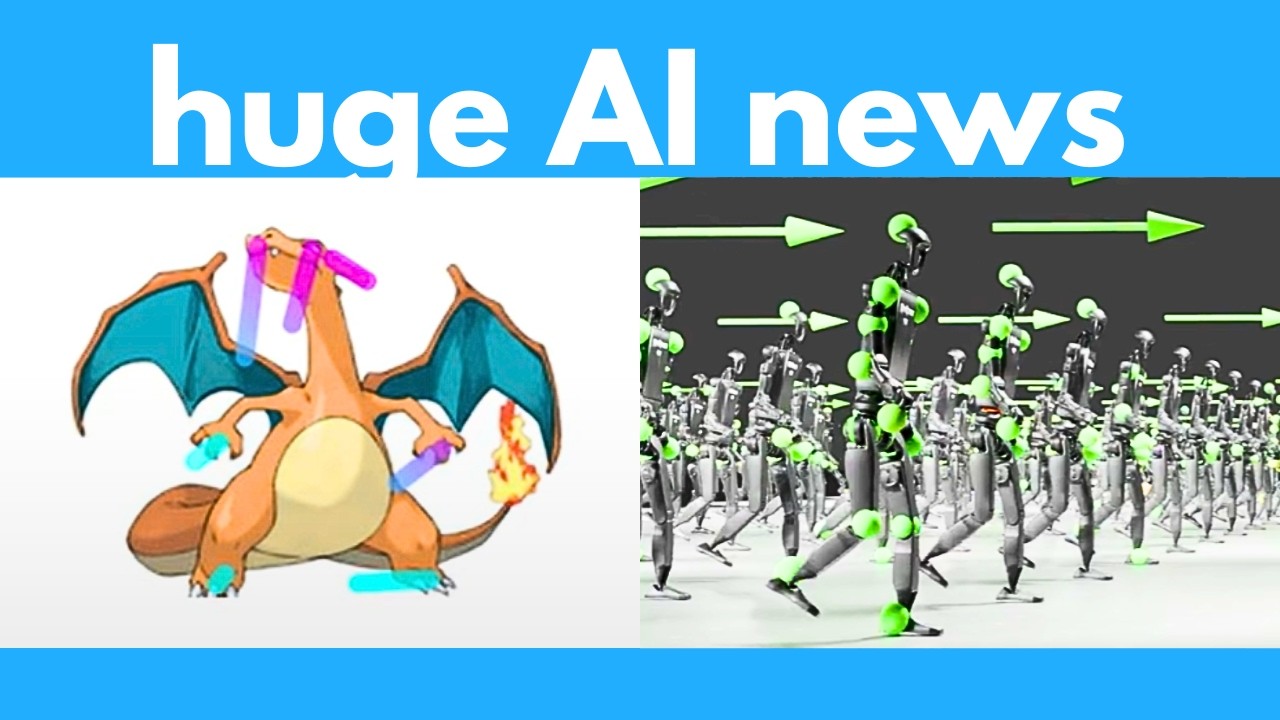This week in AI highlights significant advancements, including the launch of Framer, a tool for generating videos by interpolating images, and Oasis, an AI-driven Minecraft simulation that operates in real-time without pre-programmed scenes. Additionally, Google’s Unbounded RPG game and the Dream Clear image upscaler have emerged, alongside updates from OpenAI that enhance search capabilities and user experience.
This week in AI has been marked by groundbreaking advancements, including a new tool called Framer that generates videos by interpolating between two images. Unlike previous tools, Framer allows users to control the movement of objects within the video by drawing trajectories, making it versatile for various styles, including cartoons and sketches. The tool has shown impressive results, particularly in generating Pokémon evolution videos, and has been made available for public testing on Hugging Face.
In the realm of gaming, a new AI-driven project called Oasis has emerged, creating a real-time, fully interactive Minecraft simulation. This project builds on previous AI gaming initiatives, such as Google’s Project Game Engine and Microsoft’s Diamond, which generated real-time simulations of other games. Oasis operates without pre-programmed scenes, relying on extensive training data from Minecraft gameplay to understand user actions and generate responses in real-time, achieving 20 frames per second with zero latency.
Another exciting development is Google’s Unbounded, an AI-generated RPG game that allows players to interact with custom characters in an open-ended environment. This game features a unique architecture that combines multiple AI components to create consistent characters and simulate user interactions. The potential for such technology to evolve into fully interactive, real-time RPGs is significant, suggesting a future where video games are more dynamic and personalized.
In image processing, a new open-source upscaler called Dream Clear has been introduced, outperforming existing models by significantly enhancing the detail in blurry images. This tool has shown remarkable results in restoring clarity to various types of images, including faces and landscapes. Additionally, Google has quietly launched a feature called “Learn About,” which allows users to explore topics in-depth, providing a structured way to learn about various subjects through an interactive interface.
Lastly, notable updates from OpenAI include the release of the Search GPT feature, which integrates web search into responses for paid users, enhancing the relevance and accuracy of information provided. OpenAI has also introduced a Chrome extension to set GPT search as the default search engine, positioning it as a competitor to Google. Other updates include the ability to search chat history and the expansion of advanced voice features to desktop applications, further enhancing user experience and accessibility in AI interactions.
